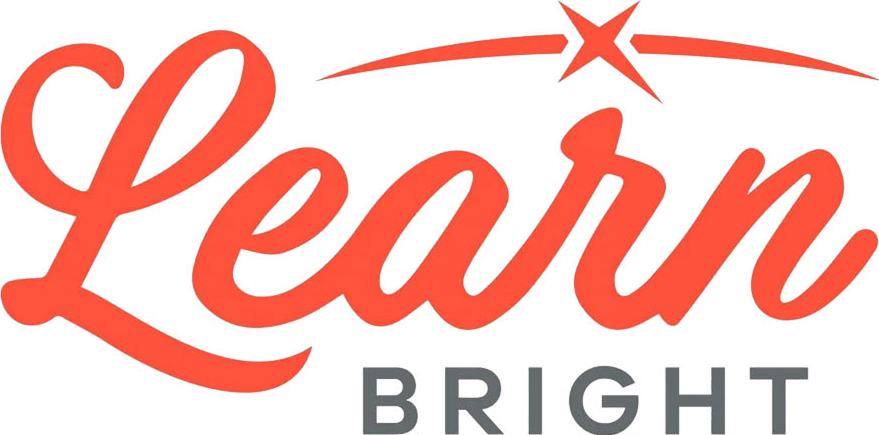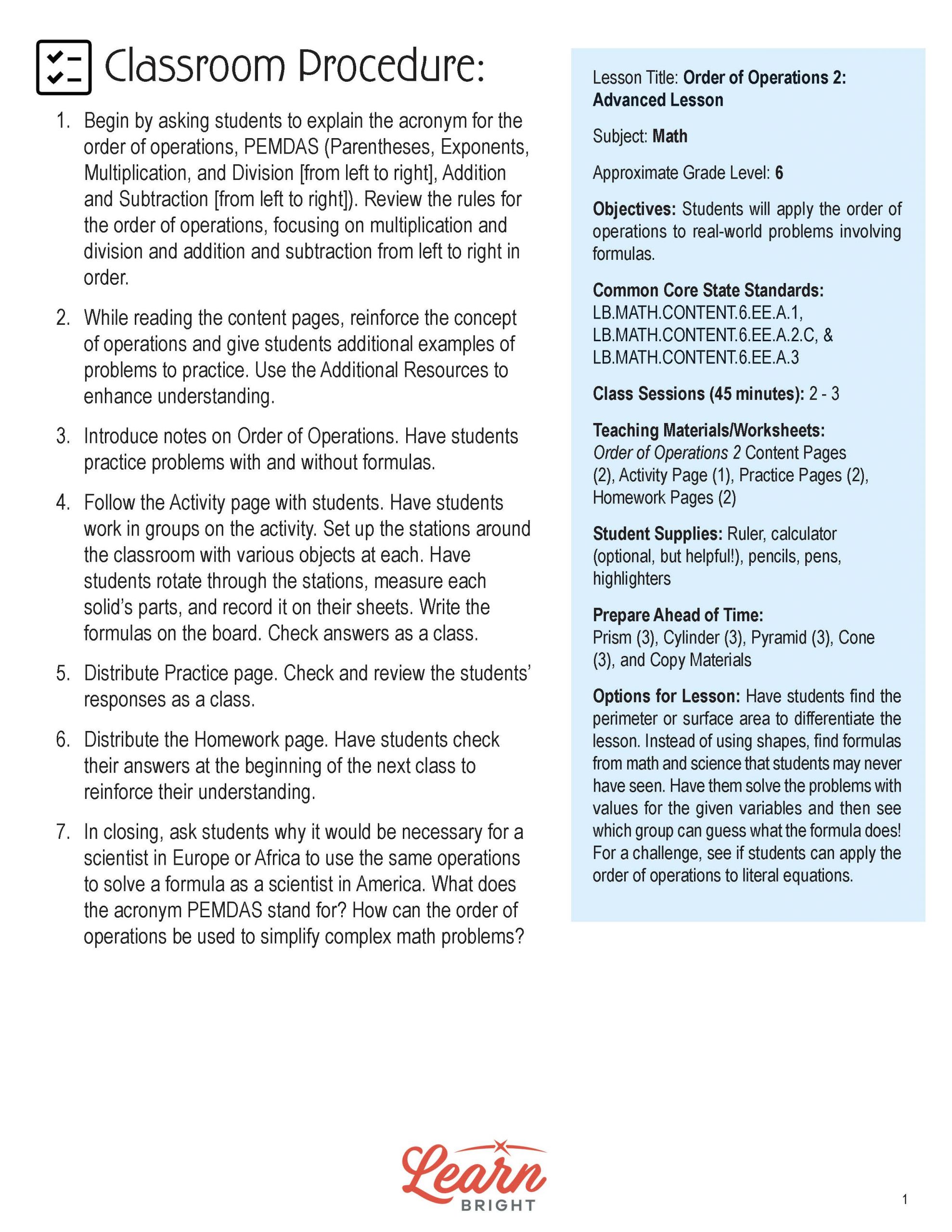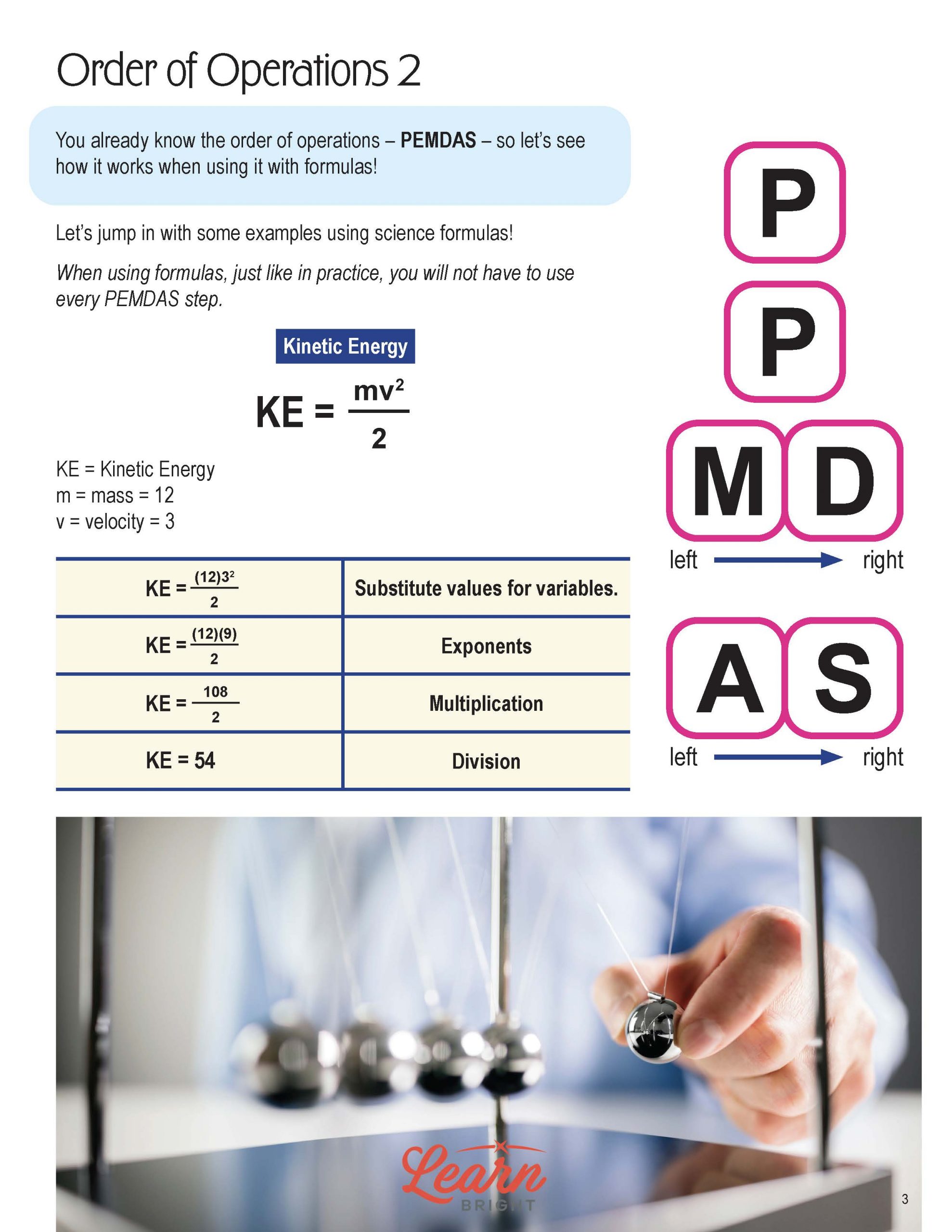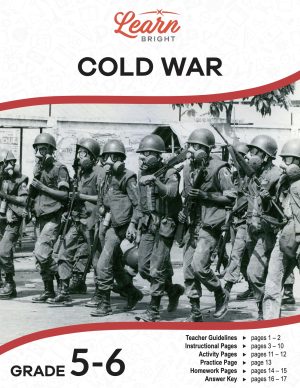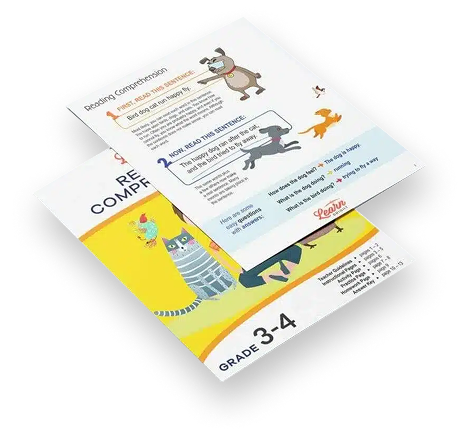Description
What our Order of Operations 2: Advanced lesson plan includes
Lesson Objectives and Overview: Order of Operations 2 teaches students how to apply the order of operations to to formulas. At the end of this lesson, students will be able to apply the order of operations to real-world problems involving formulas. This lesson is for students in 6th grade.
Classroom Procedure
Every lesson plan provides you with a classroom procedure page that outlines a step-by-step guide to follow. You do not have to follow the guide exactly. The guide helps you organize the lesson and details when to hand out worksheets. It also lists information in the blue box that you might find useful. You will find the lesson objectives, state standards, and number of class sessions the lesson should take to complete in this area. In addition, it describes the supplies you will need as well as what and how you need to prepare beforehand. The supplies you will need for this lesson include rulers, calculators, pencils, pens, and highlighters.
Options for Lesson
Included with this lesson is an “Options for Lesson” section that lists a number of suggestions for activities to add to the lesson or substitutions for the ones already in the lesson. One optional addition to this lesson is to have your students find the perimeter or surface area. Instead of using shapes, you could find formulas from math and science that your students may never have seen. You could also have groups of students solve problems with values for the given variables and then see which group can guess what the formula does. If you have more advanced students or what to give them more of a challenge, you can see if your students can apply the order of operations to literal equations.
Teacher Notes
The teacher notes page includes a paragraph with additional guidelines and things to think about as you begin to plan your lesson. This page also includes lines that you can use to add your own notes as you’re preparing for this lesson.
ORDER OF OPERATIONS 2 LESSON PLAN CONTENT PAGES
Order of Operations 2
The Order of Operations 2 lesson plan includes two content pages. Students already know the order of operations, but they likely have not used it with formulas before! The lesson begins with some examples using different science formulas. Like with all equations, not every step in the order of operations will be used with every formula.
Kinetic Energy
The formula for kinetic energy is KE = mv²/2, where KE is Kinetic Energy, m is mass, and v is velocity. Let’s look at an example to see how we could solve this equation using the order of operations. In our example, m = 12 and v = 3.
First, we substitute the values for variables: KE = (12)3²/2. Next, we address the exponents: KE = (12)(9)/2. Then, we move on to multiplication: KE = 108/2. Finally, we divide and find our final answer: KE = 54.
Universal Law of Gravity
The formula for the Universal Law of Gravity is F = G(Mm/r²), where F is force, G is the gravitational constant, M is mass #1, m is mass #2, and r is distance. Let’s look at an example to see how we could solve this equation using the order of operations. In our example, G = 7, M = 8, m = 6, and r = 4.
First, we substitute the values for variables: F = 7((8)(6))/4²). Next, we address the exponents: F = 7((8)(6))/16). Then, we move on to multiplication: F = 7(48/16). Next, we divide: F = 7(3). Finally, we multiply again and find our final answer: F = 21.
Volume of a Sphere
The formula for the Volume of a Sphere is V = 4πr³/3, where V is volume, π is pi (3.14), and r is the radius. Let’s look at an example to see how we could solve this equation using the order of operations. In our example, r = 5.
First, we substitute the values for variables: V = 4(3.14)5³/3. Next, we address the exponents: V = 4(3.14)125/3. Then, we move on to multiplication: V = 1,570/3. Finally, we divide and find our final answer: V = 523.33.
ORDER OF OPERATIONS 2 LESSON PLAN WORKSHEETS
The Order of Operations 2 lesson plan includes three worksheets: an activity worksheet, a practice worksheet, and a homework assignment. You can refer to the guide on the classroom procedure page to determine when to hand out each worksheet.
MEASURING SOLIDS ACTIVITY WORKSHEET
Students will work in groups to complete the activity worksheet. Each group will visit stations set up around the classroom with different objects. At each station, they will measure each solid’s parts, recording their measurements on the worksheet.
EQUATIONS OF MOTION PRACTICE WORKSHEET
For the practice worksheet, students will solve four Equations of Motion using the information given. They will show each step.
ORDER OF OPERATIONS HOMEWORK ASSIGNMENT
The homework assignment asks students to using the formulas for diameter, cap height, and Pi to find the answer to the problem on the worksheet. They will show their work.
Worksheet Answer Keys
This lesson plan includes answer keys for the practice worksheet and the homework assignment. If you choose to administer the lesson pages to your students via PDF, you will need to save a new file that omits these pages. Otherwise, you can simply print out the applicable pages and keep these as reference for yourself when grading assignments.
